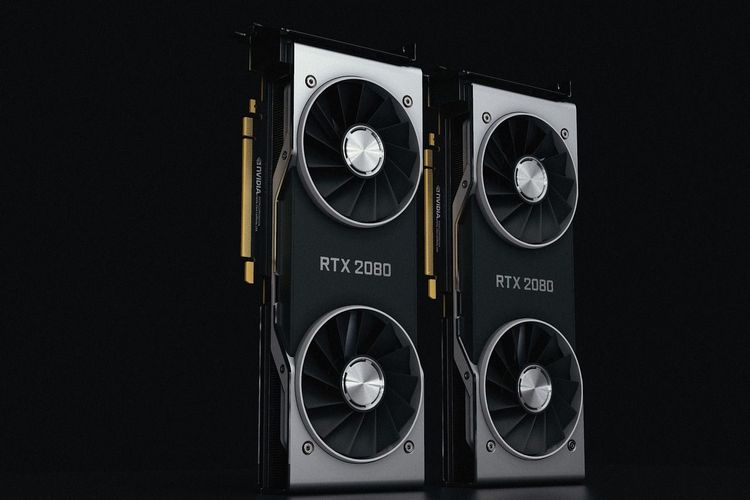GTC 2024: High-Performance AI Networks
Key Highlights:
Opening Address: Meng Qing, NVIDIA's Director of Network Market for China, discussed the surging demand for AI computing power driven by advancements in large model training and inference. He emphasized the importance of GPU efficiency and utilization in establishing a competitive edge in AI training and enhancing investment outcomes. Meng introduced NVIDIA's Infiniband and Spectrum-X solutions, purpose-built for cloud operators and AI innovators to deliver high-performance, high-throughput, and low-latency networks. The pivotal roles of NVIDIA's DPU and Docker environments in unlocking the potential of GPU clusters were also addressed.
Keynote Panel – Networking in the Era of Big Compute: Song Qingchun, NVIDIA's Senior Director of Network for Asia Pacific, examined how ChatGPT's emergence has led to increased demand for computational power in the era of big computing. He highlighted the significance of data centers as compute hubs and explored strategies for redesigning them to meet substantial power requirements. The discussion included advancements in data center architecture, including AI factories and AI cloud services, as well as the synergy between NVIDIA's NVLink and Infiniband for optimal performance. Additionally, he discussed MLPerf as a crucial metric for evaluating computing platform performance and NVIDIA’s continuous software and hardware optimizations.
Keynote Discussion – NVIDIA’s Efficient Networking Solutions for Large Model Applications: Feng Gaofeng, NVIDIA's Senior Director of Network Technology Market, highlighted NVIDIA's innovative networking solutions aimed at building efficient AI computing centers. He emphasized the impact of network performance on the training and inference of large language models and introduced the Superpod reference architecture as a means to achieve high performance. The discussion also covered the evolution of Infiniband technology and its benefits for AI applications.
Keynote on Spectrum-X – High-Performance AI Clusters on Ethernet: Chen Long, NVIDIA's Director of Network Market Development, presented the Spectrum-X platform, which facilitates the creation of high-performance AI clusters. He explored the implications of large models on the AI market and highlighted Ethernet's advantages for cloud services. The discussion underscored the Spectrum-X platform’s capability to provide outstanding network transmission performance across various applications.
Keynote on DPU Bare Metal Applications in Large Model Scenarios: Wang Xiaohui, UCloud's R&D Director of Cloud Computing Products, shared insights about DPU bare metal products and their applications in large model environments. She emphasized the core value of the BlueField card and its ability to enhance bare metal products effectively. Wang introduced the integration of bare metal products with high-performance GPU clusters for training setups and discussed building computing platforms to aid algorithm engineers in submitting model tasks and applications within AI governance.
Conclusion: The conference offered comprehensive insights into the development and optimization of high-performance AI networks, focusing on large model training and inference. Experts from NVIDIA and UCloud shared valuable experiences regarding network technologies, DPU bare metal solutions, and AI cluster architecture. The discussions centered on harnessing technological innovation to meet the growing demand for AI computing power while providing efficient, scalable solutions. Attendees gained a deeper understanding of current trends and best practices in the AI landscape.
---
What’s Next in Generative AI - GTC 2024 Highlights
Manuvir Das (NVIDIA) and Brad Lightcap (OpenAI): During this session, Brad Lightcap, COO of OpenAI, discussed his role in translating laboratory research into practical applications for clients, users, and partners. His focus is on engaging with clients to identify opportunities for seamless technology integration into real-world scenarios.
Business Applications of ChatGPT: Initially designed for individual use, ChatGPT has garnered considerable interest from businesses, with over 90% of Fortune 500 companies exploring its applications across departments.
Collaboration with Business Clients: OpenAI is committed to enhancing operational efficiency through partnerships, enabling finance teams to analyze data more effectively and streamline processes across various functions.
Mission and Role of OpenAI: OpenAI's mission is to democratize technology benefits, providing not only services but also comprehensive toolkits for developers to create effective applications.
Model Ecosystem Development: OpenAI is focused on both large and small model applications in business, optimizing each model for specific use cases to improve performance.
AI Strategy for Enterprises: OpenAI recommends that companies start by addressing a few specific problems before gradually expanding their AI initiatives. They encourage team members to explore technology organically to unlock its potential.
Customized GPT Models: OpenAI has introduced customizable GPT models, allowing businesses to tailor ChatGPT to their unique workflows, significantly enhancing its practicality.
Future Directions in AI Development: OpenAI anticipates ongoing improvements in AI models, particularly in reasoning and execution capabilities, envisioning AI as reasoning agents capable of information retrieval and action.
Humanizing Technology: Both OpenAI and NVIDIA recognize the need to humanize technology, making interactions with computers more intuitive and accessible.
AI Adoption in Enterprises: OpenAI reports rapid AI adoption within businesses, projecting substantial improvements in operations, efficiency, and new value-generation opportunities.
Conclusion: This session underscored OpenAI's vision for enterprise computing and the future trajectory of AI development. The emphasis was on democratizing technology and creating user-friendly interfaces to help enterprises enhance efficiency and foster innovation, with NVIDIA expressing commitment to future collaborations.
---
Intelligent Robotics in the Industrial Metaverse Powered by OpenUSD - GTC 2024 Highlights
Cristian Satori (Siemens) and Vincenzo De Paola (Siemens): This session focused on the necessity of anticipating future developments amidst rapidly evolving technological landscapes, emphasizing the increasing importance of predicting trends in manufacturing.
Challenges and Trends in Manufacturing: The industry is shifting from mass production to personalized manufacturing while grappling with the pressures of maintaining quality and cost amid varying production demands.
Shifting Consumer Demands: Growing consumer demand for personalized products presents challenges for both supermarkets and manufacturers, prompting a need for more flexible and modular production capabilities.
Applications of the Industrial Metaverse: The industrial metaverse integrates intelligent robotics, such as the Superta by EPF, combining advanced automation and AI to address evolving manufacturing needs.
Features of Superta: The Superta is a versatile, mobile AI-powered robot that can easily manipulate various components. It employs an AI-driven visual system for automatic part identification and recipe adaptation.
Digital Twin Applications: Siemens and EPF are utilizing digital twin technology to evaluate automation programs in virtual environments, optimizing machine cycle times and enhancing efficiency.
AI and Machine Learning in Manufacturing: Implementing AI and machine learning technologies significantly boosts robot productivity and accuracy through improved target detection and grasping strategies.
Potential of the Industrial Metaverse: The industrial metaverse fosters new business models through digital twins and AI agents, propelling the manufacturing sector towards autonomy.
OpenUSD Alliance: Siemens has joined the OpenUSD Alliance to promote industry standards and streamline collaboration, enhancing design processes across the manufacturing landscape.
Collaboration and Innovation: Siemens’ collaboration with NVIDIA signifies progress in open industrial digital business platforms and automation software, paving the way for transformative shifts in manufacturing.
---
This refined content optimally integrates keywords and maintains clarity while enhancing engagement and flow for readers.







